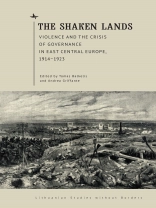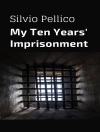The volume focuses on violence during the breakdown of East Central European states brought by one of the most violent periods in modern European history: from the start of the Great War in 1914 until 1923 when Europe, finally, achieved peace after a series of civil conflicts and interstate wars. The contributors offer several case studies that cover the vast region stretching from the Baltic states to Hungary. They explore different types of violence against its civilian populations with a particular focus on communal violence committed by civilians onto their neighbors. They suggest that disintegration of state power brought by the Great War was a key condition that produced violence. Yet the process of post-WWI state building was equally or more violent as nascent East Central European states institutionalized the use of violence to achieve their political agendas.
Spis treści
Acknowledgements
Introduction
Tomas Balkelis and Andrea Griffante
Contributors
1. The Evolution of Wartime Criminality in Lithuania, 1914–1920
Vytautas Petronis
2. War Violence and Its Representation: A Comparison of Civilian Experiences of the Great War on Both Sides of the Former Russian-German Border
Vasilijus Safronovas, Vygantas Vareikis, and Hektoras Vitkus
3. The Military Pogroms in Lithuania, 1919–1920
Darius Staliūnas
4. Scandinavian Volunteers as Perpetrators of Violence and Crime in the Estonian War of Independence
Mart Kuldkepp
5. The Rich and the (In)famous: Social Conflicts and Paramilitary Violence in Hungary during the Counterrevolution, 1921–1923
Béla Bodó
6. The Polish Central Government, Regional Authorities, and Local Paramilitaries during the Battle for the Western Borderlands, 1918–1921
Jochen Böhler
7. Eisenbahnfeldzug: Railway War in East Central Europe
Maciej Górny
8. Beyond Comparison? The Challenges of Applying Comparative Historical Research to Violence
Julia Eichenberg
O autorze
Andrea Griffante is a senior research fellow at the Lithuanian Institute of History in Vilnius. He received his MA at the University of Trieste and his Ph D in history at Klaipėda University. His latest monograph is Children, Poverty, and Nationalism in Lithuania, 1900–1940 (Palgrave, 2019). His research fields include history of humanitarianism, nation-building, history of childhood, and social history of medicine.












